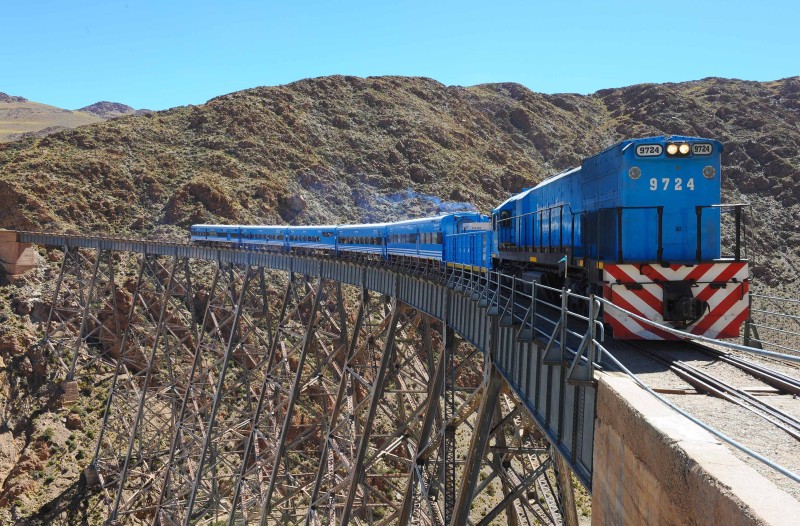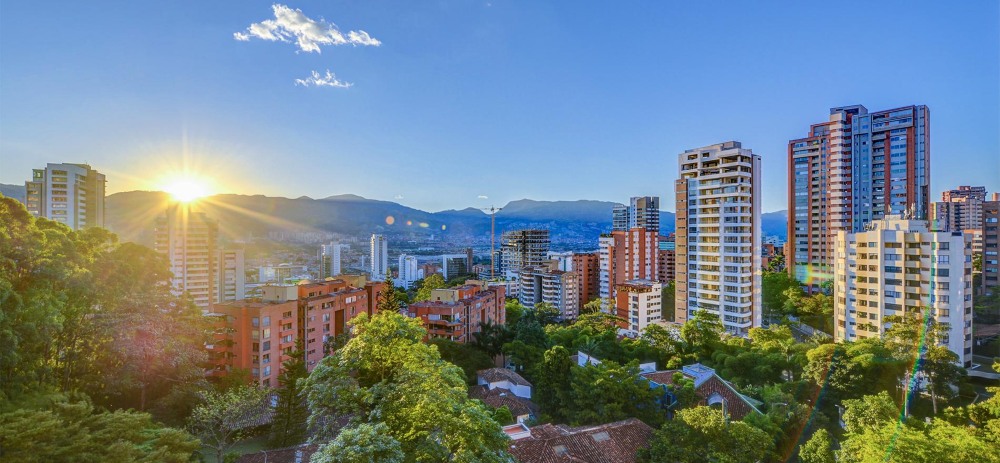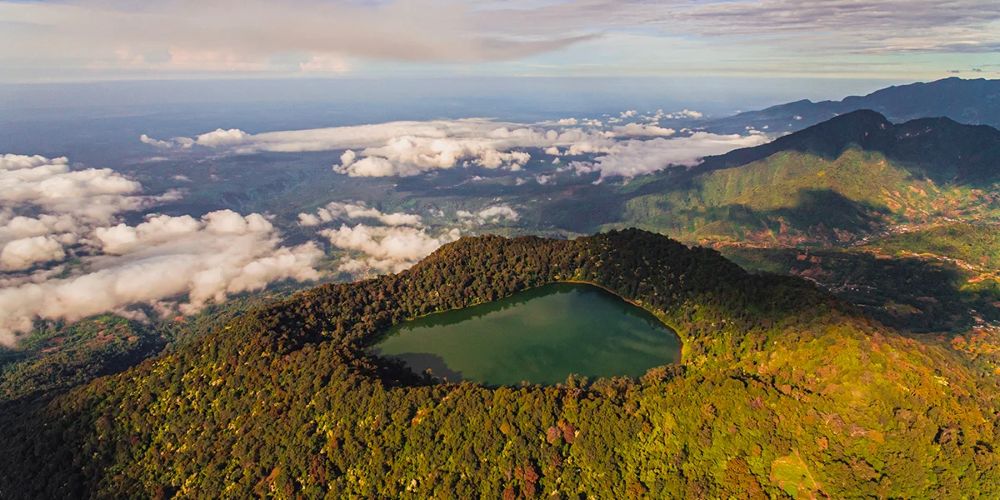It turns its engines very close to the sky and, thanks to its uniqueness, it has become a must-see attraction in the Salta region and an icon in Argentina. Five decades of crossing unique landscapes and offering incredible panoramic views of northern Argentina!
A goosebump-inducing experience in the heights, which takes you to the heart of the “Beautiful Province”: Salta. The famous Tren a las nubes (Train to the clouds) made its first journey on 16 July 1972, after many years of hard work. The efforts paid off as it took in the incredible landscapes of Salta through curves, drops, viaducts, tunnels and bridges, offering a total route of 434 kilometres.
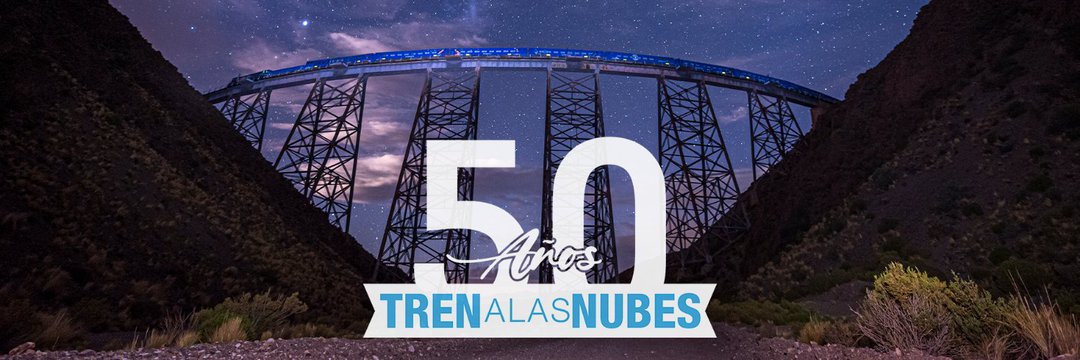
The light blue of the locomotive and carriages contrasts with the red shades of the mountains, paying homage to the typical colours of the north, and combines perfectly with the sky. The interior of the carriage is ready for tourists who want to take lots of pictures and have all their senses awakened – but not only that! The temptation to stand up and look out of the windows is irresistible. This is because this means of transport is distinguished by the panoramic views it offers.
It is the third highest train in the world
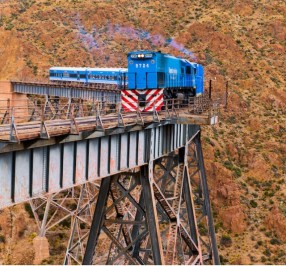
The Cloud Train reaches an altitude of 4,220 metres above sea level, making it the third highest in the world. The view from these heights is incredible: copper-coloured mountains, indigenous vegetation, Andean condors flying overhead.
It was named by photographers
The story goes that in the 1960s, two Argentine photographers from the Tucumán region covered the section passing through Salta and Socompa. At the time, it was a steam train that created nebulae of steam that were lost in the sky. These fictitious clouds gave rise to the legendary nickname of the Cloud Train.
The greatest icon of its route is the La Polvorilla viaduct
A marvel of 19th century engineering, an architectural work of global and local significance, and the star of countless photographs… This section is a favourite with travellers. The steel bridge is 4,220 metres above sea level, weighs 1,600 tonnes, is 224 metres long and 63 metres high, and crosses one of the country’s most iconic roads: Route 40. Its structure stands out against the landscape of the Puna, creating an incredibly photogenic contrast. The route reveals endless mountainsides, full of shades of red and yellow.
San Antonio de los Cobres is the main urban centre of the region
Located 196 kilometres from the capital, this town is a tourist attraction in its own right. The train journey starts here but, as well as being a starting point, it hides mysteries closely linked to the local culture. You can’t leave without visiting the San Antonio de los Cobres craft market to buy authentic handicrafts, the Paseo Anatolio and its llama farm, the San Antonio de Padua church, built of adobe and volcanic rock, and the Andean Regional Museum. Lose yourself in its dirt streets and experience a journey to the heart of northwest Argentina.
It can carry 468 passengers
468 people can board the eight carriages to enjoy the train journey and the restaurant car. It has bilingual guides, an audio system and videos. It reaches speeds of up to 35 km/h, so it’s the perfect balance of adrenaline and speed to immerse yourself in the natural environment that surrounds it.
Source: Visit Argentina

